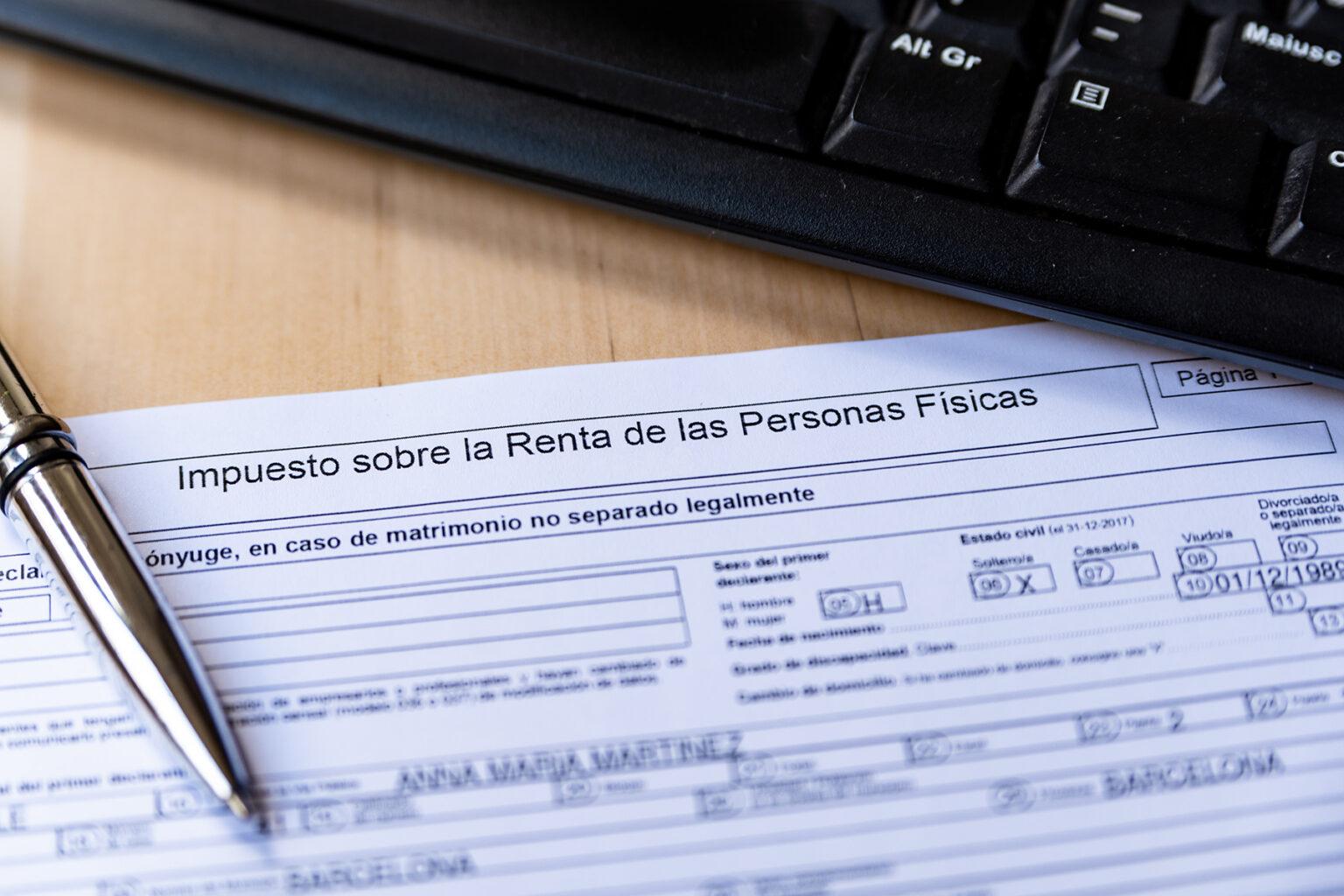As the Spanish fiscal calendar marches steadily towards 2024, a crescendo of calculators and coffee cups marks the return of a yearly ritual as inevitable as the changing seasons—La Renta. In the intricate dance of numbers and regulations, understanding the nuances of what you can deduct on your Spanish tax return becomes as crucial as the flamenco is to Andalucía—a complex, yet beautiful art form. For expatriates navigating the cobblestone financial pathways of Spain or locals looking to optimize their tax situation, the question remains perennially relevant: “What items can I deduct on my Spanish tax return in 2024?”
This article aims to be your compass in the labyrinth of tax codes and regulations, offering clarity amidst complexity. We’ll explore the colorful mosaic of deductible items—from the traditional pillars of housing and education to the more nuanced realms of environmental investments and familial obligations. Join us on this journey of fiscal discovery, where every footnote could be a stepping stone to potential savings, and every paragraph holds the promise of unraveled mysteries. Whether you’re wielding a pen over piles of receipts or clicking through digital records, understanding your deductions is the first step toward navigating La Renta with confidence and finesse. Let’s embark on this odyssey together, unraveling the tapestry of tax deductions that await in 2024.
Unveiling the Secrets to Maximizing Your Spanish Tax Return in 2024
With the ever-evolving tax landscape in Spain, staying informed about what deductions you’re eligible for can significantly impact your financial year. For starters, it’s pivotal to understand that a variety of expenses, ranging from housing to personal education, can potentially lower your taxable income. Investment in your primary residence stands out amongst the most significant deductions; whether it’s interest on your mortgage or money spent on renovations, keeping track of these expenses can prove beneficial. Similarly, contributions to pension plans not only secure your future but also offer immediate tax relief, making it a wise move for those looking to optimize their tax returns. Education expenses, including tuition fees for professional courses or degrees related to your current job, also offer a window for deductions, albeit with certain stipulations.
| Expense Category | Potential Deduction |
|---|---|
| Mortgage Interest | Varies by Autonomous Community |
| Pension Contributions | Up to €8,000 or 30% of net earnings |
| Education Expenses | Up to €1,000 (conditions apply) |
| Charitable Donations | 75% deduction for the first €150, 30% thereafter |
Adding to these, charitable donations provide another avenue for deductions, with the government encouraging such contributions by offering sizable tax breaks. The first €150 donated can avail of a 75% deduction, and any amount thereafter is eligible for a 30% deduction. It’s important to keep meticulous records of these donations, as documentation is key when filing your return. Furthermore, self-employed individuals can tap into a range of additional deductions, from office supplies to a portion of their vehicle expenses, provided they’re directly related to the activity generating income. Navigating these deductions requires a keen eye for detail and an updated understanding of Spain’s tax regulations, positioning well-informed taxpayers to significantly reduce their liability.
Diving Deep into Deductible Items: Save More on La Renta
Navigating the labyrinth of tax deductions can feel like deciphering an ancient scroll, but when you know what treasures lie within, it’s worth the dive. Among these treasures for the fiscal year 2024, in Spain, are various deductible items that can significantly reduce your taxable income, ultimately keeping more money in your pocket. Understanding which expenses can be deducted on your Spanish tax return is crucial, as it directly impacts your financial wellness.
First and foremost, let’s unravel the primary categories of deductible expenses:
-
Housing Expenses: This category includes interest on mortgages for your primary residence, home improvement loans, and rental expenses. However, specific conditions apply, and it is essential to keep all relevant documentation.
-
Educational Expenses: Costs associated with school tuition, academic materials for children and adults pursuing formal education, can be deducted. This includes specialized courses related to improving job skills but does not cover informal or recreational courses.
-
Healthcare Expenses: Expenditures on health insurance premiums, especially those covering dependents, children, or the elderly, can lower your tax bill. Additionally, out-of-pocket payments for medical services and treatments not covered by the public health system are also deductible.
-
Investment in Renewable Energy: Investments in systems that improve energy efficiency at home, including solar panels and wind turbines, are not only good for the planet but also beneficial for your tax return.
-
Donations: Contributions to charities, NGOs, and certain cultural and sporting organizations offer not just a sense of fulfillment but also a deduction on your tax return. It is a win-win, supporting causes you care about while saving on taxes.
For a clearer picture, here’s a simplified table showcasing some key deductible items:
| Category | Details | Limitations |
|---|---|---|
| Housing Expenses | Interest on mortgages, home improvement loans | Primary residence only |
| Educational Expenses | School tuition, academic materials | Formal education |
| Healthcare Expenses | Health insurance premiums, out-of-pocket medical costs | Not covered by public system |
| Investment in Renewable Energy | Solar panels, wind turbines | Approval required |
| Donations | Charities, NGOs, cultural and sporting organizations | Eligibility of organization |
Embark on your journey through tax season with this guide as your map, leading you to potentially significant savings. Remember, the realm of deductions is constantly evolving, so it’s essential to stay informed about the latest updates and consult with a tax professional for personalized advice.
Expert Tips on Navigating the Spanish Tax Deductions Landscape
Embarking on the journey of filing your tax returns in Spain, it’s imperative to arm yourself with knowledge about potential deductions to maximize your benefits. The landscape of tax deductions can be complex, but with the right guidance, you can uncover opportunities to reduce your tax liability. Investments in primary residences remain a cornerstone for deductions; whether it’s purchasing a new home or improvements made on existing properties, there are specific criteria to be met for eligibility. Additionally, rental deductions stand out for those dwelling in rented accommodations, offering a breath of financial relief, albeit with certain limitations based on autonomous communities.
Diving deeper into the realm of professional expenses, self-employed individuals and entrepreneurs have a unique set of deductions at their disposal. This includes everything from office supplies and equipment to transportation costs, each meticulously documented and justified. For those navigating the turbulent waters of educational expenses, there’s a silver lining with deductions available for continuing education related to your employment field, a move that underscores the government’s commitment to ongoing professional development.
| Deduction Category | Eligibility Criteria | Limitations |
|---|---|---|
| Investments in Primary Residence | Purchase or home improvements | Varies by autonomous community |
| Rental Deductions | Rented as primary residence | Income and regional limitations |
| Professional Expenses | Self-employed/Entrepreneurs | Must be directly related to business activity |
| Educational Expenses | Continuing education for employment | Specific courses and programs |
Minding the intricacies of each category, it’s clear that navigating Spanish tax deductions necessitates a blend of meticulous record-keeping and strategic planning. Whether it’s leveraging property investments or optimizing business expenses, each deduction scenario offers a path to financial optimization, a testament to the importance of astute financial management within the Spanish tax system.
Advance Your Tax-Saving Strategy: Beyond the Basics
When diving into the depths of tax optimization in Spain, understanding the nuances of deductions can turn a seemingly straightforward task into a gold mine of savings. Among the treasure trove of deductible expenses, housing-related deductions sit like buried jewels, awaiting those savvy enough to claim them. Whether you’re servicing a mortgage on your primary residence or have made significant energy efficiency improvements to your home, the Spanish tax authority offers incentives that can reduce your taxable base significantly. Moreover, rental property owners aren’t left out; expenses related to the maintenance and renovation of rental properties can also lighten your tax load, albeit with necessary documentation to back up claims.
Beyond the walls of one’s home, a myriad of opportunities unfolds. Professional development expenses, for instance, are not to be overlooked. Whether attending seminars, acquiring new qualifications, or even language courses pertinent to one’s job, these are considered investments in your future earning potential and are duly recognized by the tax system. Additionally, significant relief comes in the form of deductions for large family expenses, support for dependents with disabilities, and donations to charities or non-profits. Such contributions not only enrich societal welfare but also offer a pathway to reducing your taxable income. Delving into these less traversed paths, armed with knowledge and thorough documentation, can elevate your tax-saving strategy to new heights.
<table class="wp-block-table is-style-stripes">
<thead>
<tr>
<th>Category</th>
<th>Description</th>
<th>Potential Savings</th>
</tr>
</thead>
<tbody>
<tr>
<td><strong>Housing</strong></td>
<td>Mortgage interest, energy efficiency improvements.</td>
<td>Varies</td>
</tr>
<tr>
<td><strong>Professional Development</strong></td>
<td>Courses, seminars, qualifications related to current job.</td>
<td>Up to 30%</td>
</tr>
<tr>
<td><strong>Family & Dependents</strong></td>
<td>Large family benefits, support for dependents with disabilities.</td>
<td>Additional deductions</td>
</tr>
<tr>
<td><strong>Charitable Donations</strong></td>
<td>Donations to approved charities and non-profits.</td>
<td>35-80%</td>
</tr>
</tbody>
</table>Exploring these avenues not only grants you the satisfaction of optimizing your financial well-being but also contributes to a broader sense of achievement, knowing you’re navigating the complexities of the tax system with adeptness. Remember, the key to maximizing these benefits lies in meticulous record-keeping and an eagerness to dive deep into the specifics of tax legislation, laying a solid foundation for a prosperous fiscal future.
Key Takeaways
As we draw the curtain on our comprehensive exploration of the deductions possible on your Spanish tax return for the year 2024, it’s important to reflect on the journey we’ve taken together. From navigating the labyrinthine alleys of allowable deductions to decoding the cryptic messages hidden within the tax code, we aimed to illuminate the path to a potentially lighter tax load. Remember, in the realm of taxes, knowledge is not just power—it’s savings.
The ocean of guidelines and regulations might seem daunting, but armed with the insights shared here, you are now better equipped to sail these waters. Whether you’re an educator claiming deductions for classroom supplies, a homeowner looking into property-related allowances, or a freelancer calculating your workspace costs, the goal was to offer you a compass to navigate by.
However, as with any voyage into uncharted territories, it’s prudent to have a guide. In this case, consulting with a tax professional who understands the intricacies of Spanish tax law will ensure that your sails are set correctly, and you’re harnessing every favorable wind. Their expertise can help validate your deductions, avoid the turbulent waters of non-compliance, and potentially discover hidden treasures in the form of tax savings you might have overlooked.
As we anchor our ship at the end of this journey, it’s our hope that this exploration has demystified the process of identifying what you can deduct on your Spanish tax return in 2024. Tax season, with its potential challenges and opportunities, doesn’t have to be a voyage into the unknown. With the right map and compass—knowledge and advice—you’ll find that even in the vast, sometimes intimidating world of taxes, there are stars to steer by.
May your financial journey be prosperous, and may your deductions be ever in your favor. Until our next navigational challenge, buena suerte (good luck) and buen viaje (safe travels) through the fiscal year ahead.




